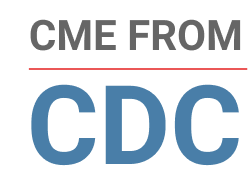Current CME/CE Activity
Learning Objectives (Outcomes)
Learners will report an increase in knowledge related to financial toxicity in the adolescent and young adult population.
Description
Sarah Paul, LCSW, OSW-C, senior director of social work at CancerCare in New York, NY, talks to Lenise Taylor, MN, RN, AOCNS®, BMTCN®, oncology clinical specialist at ONS, about financial toxicity in adolescent and young adult (AYA) cancer survivors.
Immunization: You Call the Shots-Module Fourteen-Rotavirus 2024 - (Web based) - WB4760

This course offers continuing education (CE). When registering for the course, please select each type of CE you would like to apply for. To earn CE, you must pass the post-assessment and complete the evaluation by March 19, 2026.
Course Description
You Call the Shots is an engaging, web-based immunization training course featuring a series of modules that delve into vaccine-preventable diseases and elucidate the most recent recommendations for vaccine utilization. Each module offers interactive learning experiences, self-test practice questions, reference materials, and an extensive glossary. This 14th module in the series focuses on rotavirus and its related vaccines.
Lyme Disease Treatment and Management (Web-based) - WB4380R

This course offers continuing education (CE). When registering for the course, please select each type of CE you would like to apply for. To earn CE, you must pass the post-assessment and complete the evaluation by August 23, 2025.
Course Description
This 4-part series will enable front-line clinicians to recognize, diagnose, and treat Lyme disease, an increasingly common tickborne illness. The free online curriculum will be a valuable resource for primary care clinicians, public health professionals, pharmacists, and health educators who encounter clients with Lyme disease.
Chagas Disease: Optimizing Care for Pregnant Women and Children (Web-Based) - WB4491R

This course offers continuing education (CE). When registering for the course, please select each type of CE you would like to apply for. To earn CE, you must pass the post-assessment and complete the evaluation by 08/21/2025.
Course Description
Seminars are designed to increase knowledge and change competency of congenital Chagas disease practices and strategies. Content is derived from epidemiologic information, evaluation and treatment recommendations, and case studies
HIV PrEP: Prescribing PrEP (Web-Based) - WB4620

This course offers continuing education (CE). When registering for the course, please select each type of CE you would like to apply for. To earn CE, you must pass the post-assessment and complete the evaluation by June 30, 2025.
Course Description
This 90-minute, self-paced eLearning module takes prescribing clinicians through the process for prescribing HIV pre-exposure prophylaxis, or PrEP, and for monitoring patients on PrEP over time. Clinicians in private and public health settings will learn the basics found in the federal PrEP guidelines and apply content to patient case scenarios to get PrEP to those who need and want it. Non-medical providers also may find this course helpful in understanding the clinical management of PrEP.
Learning Objectives (Outcomes)
Upon participation in this activity, learners will be better able to:
- Discuss research evidence, and patient and disease factors that guide selection of an appropriate treatment strategy for a patient with muscle-invasive bladder cancer.
Description
This course will showcase how an expert considers various clinical and non-clinical factors when deliberating selection of treatment for patients with this disease. Faculty: Sandy Srinivas, MD



